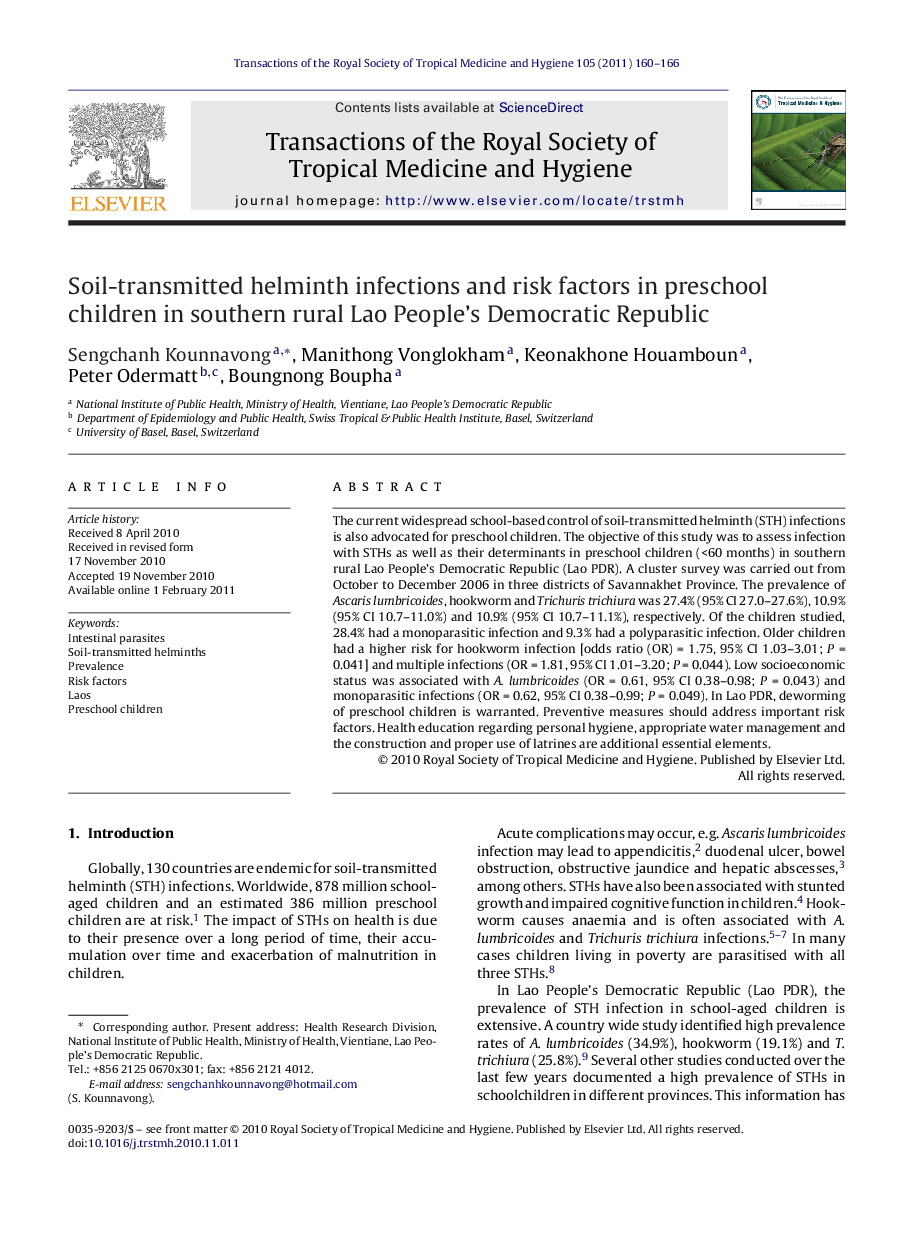| Article ID | Journal | Published Year | Pages | File Type |
|---|---|---|---|---|
| 3420621 | Transactions of the Royal Society of Tropical Medicine and Hygiene | 2011 | 7 Pages |
Abstract
The current widespread school-based control of soil-transmitted helminth (STH) infections is also advocated for preschool children. The objective of this study was to assess infection with STHs as well as their determinants in preschool children (<60 months) in southern rural Lao People's Democratic Republic (Lao PDR). A cluster survey was carried out from October to December 2006 in three districts of Savannakhet Province. The prevalence of Ascaris lumbricoides, hookworm and Trichuris trichiura was 27.4% (95% CI 27.0-27.6%), 10.9% (95% CI 10.7-11.0%) and 10.9% (95% CI 10.7-11.1%), respectively. Of the children studied, 28.4% had a monoparasitic infection and 9.3% had a polyparasitic infection. Older children had a higher risk for hookworm infection [odds ratio (OR) = 1.75, 95% CI 1.03-3.01; P = 0.041] and multiple infections (OR = 1.81, 95% CI 1.01-3.20; P = 0.044). Low socioeconomic status was associated with A. lumbricoides (OR = 0.61, 95% CI 0.38-0.98; P = 0.043) and monoparasitic infections (OR = 0.62, 95% CI 0.38-0.99; P = 0.049). In Lao PDR, deworming of preschool children is warranted. Preventive measures should address important risk factors. Health education regarding personal hygiene, appropriate water management and the construction and proper use of latrines are additional essential elements.
Related Topics
Life Sciences
Immunology and Microbiology
Applied Microbiology and Biotechnology
Authors
Sengchanh Kounnavong, Manithong Vonglokham, Keonakhone Houamboun, Peter Odermatt, Boungnong Boupha,
